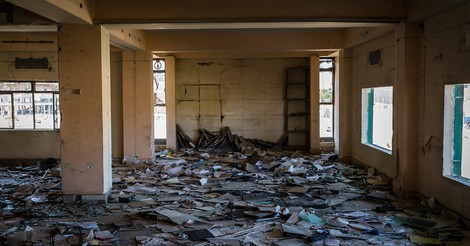Your podcast discovery platform
Curious minds select the most fascinating podcasts from around the world. Discover hand-piqd audio recommendations on your favorite topics.

piqer for: Climate and Environment Globalization and politics Deep Dives
Annie Hylton is an international investigative journalist from Canada. She writes about gender, immigration, human rights, and conflict, and has worked in East Africa, the Middle East, Central America, and elsewhere. She teaches journalism at Sciences Po in Paris and was a former international lawyer focusing on situations of conflict. Hylton is a graduate of Columbia University’s Stabile Center for Investigative Journalism and also holds a J.D. and Master of Laws in international humanitarian law.
Unearthed Documents Explain How The Islamic State Stayed In Power So Long
ISIS built a state of administrative efficiency that collected taxes and picked up the garbage. It ran a marriage office that oversaw medical examinations to ensure that couples could have children. It issued birth certificates — printed on Islamic State stationery — to babies born under the caliphate’s black flag. It even ran its own D.M.V.
The documents, which the team pulled from "the drawers of the desks behind which the militants once sat, from the shelves of their police stations, from the floors of their courts, from the lockers of their training camps and from the homes of their emirs," detail how the group wielded power through governing a territory that had previously belonged to another state.
The group, self-financed, diversified its revenue stream and made more revenue from daily commerce and agriculture than it did from petroleum. It also turned hundreds of employees, who'd worked for the previous government and were forced to work in the same jobs for the Islamic State, into accomplices. Through a system of confiscation and redistribution of land, many saw their ancestors' cropland, future inheritance and wealth, which was built over generations, stripped away.
For nearly three years, the Islamic State controlled swaths of land that at one point amounted to the size of Britain; it ruled a population estimated at 12 million people. It was not until last summer that militants finally abandoned Mosul, "after a battle so intense that it was compared to the worst combat of World War II," that it began to lose nearly all of its territory.
